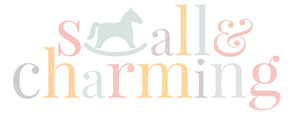Dancing is an amazing way to help develop your child’s physical and cognitive development. Dancing encourages your child to move, to express themselves and introduces them to exercise. Make it a learning activity with nursery rhymes or pop on your favourite tunes and join in. Singing along to your child’s favourite songs and playing instruments is a fantastic way to make learning fun. It’s easier to remember counting or your alphabet singing.
4. Art and crafts
We know the thought of letting your toddler loose with paint or crayons may be daunting to a lot of people. But remember you don’t have to be a Pinterest mum with the activities. Keep it simple. Make sure your child has a safe place to get started (away from the sofa cushions is always a top priority in our house). Start with colouring-in, draw some simple shapes for them to trace and colour. Stickers are great fun too. You can take the opportunity to introduce child-safe scissors. To make it interesting we love to cut up old magazines and birthday cards.
If you do want to be adventurous and try out a few Pinterest worthy activities check out our Pinterest page for inspiration.
5. Housework
Get the little ones involved in daily activities around the house. From dusting, sweeping and wiping, as long as it’s safe your toddler is going to love doing it. Our little one walks around with a spray bottle and clothe spraying and wiping as she goes along. She also loves helping to empty the dishwasher. It’s wonderful watching her focus when making sure the spoons go with the spoons. All these tasks are a wonderful way for your toddler to develop age-appropriate skills. With daily chores, your child is more than likely to become more confident and develop better life skills.
6. Independent play
Okay, we know what some of you might say to this “how?!” We’re aware that not all children want to play alone, they would rather have mum or dad join in. We have a few simple tips that may help encourage your child to play independently. Firstly, invest in open-ended toys. By this, we mean toys that don’t have a specific function and can be played with in many different ways bricks and peg toys are some of our favourites. Open-ended toys give your child the chance to develop their cognitive skills, become more confident in their abilities as well as improving their fine motor skills.
Secondly, stay close by. The idea of playing independently isn’t about the child being alone it’s about them playing alone. A child will be more inclined to focus on their play if they feel secure. And to do this you should be in sight or within earshot to start with.
Finally, you may want to consider toy rotation. To do this you will limit the number of toys available at one time and then update these toys by replacing them with others. This doesn’t mean you buy new toys. It means you take the ones you have and rotate when they’re in use. We will go into more detail about toy rotation in the future.
7. Helping you in the kitchen
If your toddler is always at your feet in the kitchen you might want to consider getting them involved. A great way to do this is to invest in a kitchen tower. This gets your child out from under your feet and standing next to you. Of course make sure it’s safe, away from anything sharp or hot. To keep our toddler happy we give her little chores while we cook. She’ll help prep the ingredients using a toddler safe knife. Start with easy to cut fruit and veg like bananas or mushrooms. This is also perfect for those picky eaters. Research has shown if a toddler helps prepare a meal they are more willing to try the food.
8. Roleplay
One of our favourite things to do is role-playing, whether that’s being in a shop, doctors or being an astronaut. Roleplay helps your child make sense of a somewhat confusing world. For example, when you roleplay being in a shop it gives the child the opportunities to develop their communication skills and their confidence. By simply showing them how to ask for their favourite ice cream you are allowing them to act out and make sense of real-life events.
If you do this often enough you will soon see your child role-playing with other children or their toys. A tea party with their teddies and dolls is a most in our house.
9. Build a strong relationship
You might think this is obvious but it’s true.
Children of all ages need a strong relationship with their caregivers. This relationship directly affects the toddler’s well-being and development. By giving them positive attention and responding to them warmly and reassuringly you will help your child feel safe and loved. And when a child feels love they thrive.
10. Take care of you
Many of you might be surprised to see this in our top 10, but we can’t stress how important it is for you to take care of yourself. Trying to parent positively and sensitively may not be easy when you’re feeling down or upset. How we interact with our children and respond to their needs can affect our child’s development. This is why it’s so important to look after you. If you’re feeling overwhelmed with parenting try and share the responsibility with your partner. If it’s household chores getting you down again share them with your partner or ask family and friends for help.
Don’t be afraid to ask for help. Especially if you feel anxious or depressed.




















